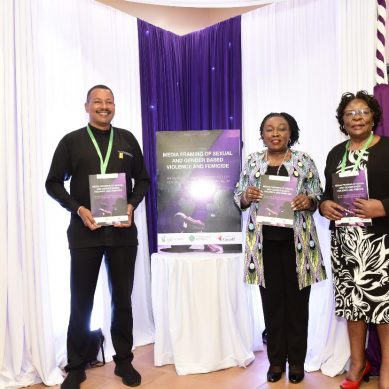
Official government statistics reports indicate that in 2024, Kenya’s youth unemployment rate stood at 11.9 per cent, a slight drop from 12.01 per cent in 2023.
While this decrease appears promising on paper, the reality for many young people in the country remains deeply troubling.
To emphasise the magnitude of this problem, the World Bank reports that nearly 75 per cent of Kenyans under the age of 35 face limited access to meaningful job opportunities.
In 2022, World Bank rated Kenya as having the highest unemployment rate in East Africa. Data showed at that time that 5.7 per cent of Kenya’s skilled labourforce is jobless today, an increase of 2.9 per cent in 2013.
Between 2013 and 2021, the report showed, unemployment rate in Tanzania reduced from 2.9 per cent to 2.6 per cent whilst the rate increased by 1.4 per cent in Ethiopia under the same period. In Uganda unemployment increased 1.0 per cent while in Rwanda the rate went up by 0.4 per cent.
Against the pessimistic outlook World Bank said Kenya’s economy grew by an average of 5.0 per cent. However, this growth came from capital-intensive infrastructure projects that have not trickled down to the average citizen.
The above statistics points not only to the shortage of available jobs but also to the need for stronger interventions that both create employment and equip youth with practical skills.
Despite completing university and college education, many graduates remain unemployed, triggering frustration among the youth, parents and community leaders.
Migori County comes handy as a case study on the acute unemployment streak that spread across all the forty seven devolve units in Kenya. A growing number of young people in the county are finding themselves stuck between qualifications and fewer jobs available, raising concerns over the future of an entire generation.
Multiple interviews carried out in Migori region revealed that a majority of unemployed youths feel abandoned by both the government and society. All the youths interviewed expressed anger that although they possess good grades from universities and colleges, getting a job has become nearly impossible without personal connections or having a strong political connection.
“Even opportunities meant to empower the youth are often inaccessible unless one knows someone influential in office,” said one Peter Otieno, a resident of Rongo town.
One of the recurring issues mentioned was the role of corruption in limiting job access. Youths claimed that some employers expect bribes before offering employment.
In other cases, job seekers are allegedly asked to provide sexual favours to secure positions, a practice that has introduced fear, demoralisation and trauma among the young people. These revelations make young people despair, pessimistic and discouraged.
Beyond corruption, the oversupply of graduates in specific courses has also been blamed for escalating unemployment. According to several respondents, many students are enrolled in the same programmes, which has led to overcrowding of similar skills in the job market.
As a result, the few job vacancies available attract high competition, often disadvantaging qualified individuals who lack money to secure employment, explained 39-year-old, George Mayaka, who is unemployed two years after graduating from Moi University.
Some youths pointed to the delayed retirement of older employees in government offices as a major problem. They argued that those who have reached retirement age should leave offices to allow the younger generation to take up public service roles.
Without this generational shift, young professionals would continue to be locked out of regular jobs, regardless of their qualifications, it emerged during a talk with a number of university graduates in Migori town.
A number of unemployed graduates reported that they have turned to boda boda transport business or given up hope of skilled employment and become casual labourers at construction sites to enable them to earn a livings
“We are disappointed that despite our academic investment, our current occupations do not reflect the value of our degrees or diplomas,” said, Liza Joy Akinyi, a procurement graduate from Multi Media University.
Akinyi says most of her colleagues are struggling with depression as a result of prolonged unemployment that has affected their mental health and self-esteem.
Some youths regret that bad politics makes it difficult to get jobs. In many cases, people are given jobs because they support certain politicians, not because they have the right skills.
This has made it difficult for those who do not have political connections to find work. Many of them come from poor families and cannot afford to pay bribes. They are left struggling, even though they are educated and qualified.
Despite all the predicaments the youth face, community leaders encourage them to venture into self-employment.
“There is the need for young people to apply for government loans that can help them start small businesses in order for them to be self-employed,” John Oreyo advises.
Oreyo, a resident of Uriri Sub-County, noted that young people should think of uniting to form groups that to enable them to qualify for group loan programmes.
But majority should learn the importance of embracing vocational skills and jua kali jobs. They should move away from the mind-set that only white-collar jobs are worth pursuing, says Oreyo, a father of two unemployed graduates.
Parents who spoke during the interviews expressed deep concern over the current massive unemployment situation in Migori and the entire country.
William Kentatta from Sagero village in Suna West Sub-County said that parents sacrifice in educating their children in the hope of securing a better future for both the children and their families.
However, the prolonged joblessness among graduates has left many parents feeling disappointed and helpless. Some noted that their children had turned to drug abuse out of despair, further compounding the problem.
Other parents appealed to the youth not to give up, advising them to be persistent in their job search and be open-minded about alternative sources of income. There was also an urgent call for the government to clean up employment processes and ensure transparency in recruitment to restore faith among job seekers.
Migori County Labour Officer John Mwangi asked colleges and universities to work towards reviewing the country’s higher education curriculum, saying there is a mismatch between what is taught in schools and what the job market demands.
“Institutions of higher learning need to collaborate more closely with industries to align courses with practical employment opportunities,” said the labour official.
The high number of jobless youths in Migori County shows a serious problem. Even though many are done with their education, they are still left out because of corruption, politics, few job chances, weak economy and unaligned course uptake among the learners, added Mwangi
Otieno Omollo, a lecturer at Rongo University explained that young people want fairness; support and a chance to allow them build their communities.
“If the system is not fixed and jobs are not given fairly, Migori County will lose many young people due to mental illness, drug use and poverty,” Omollo said.
Meanwhile, the youths are now asking for real change. They want to be given power not pity. They want to be part of solution, not to be left out in the cogs driving Kenya’s economy.
- A Tell Media / KNA report / By Addah Awuor and George Agimba







